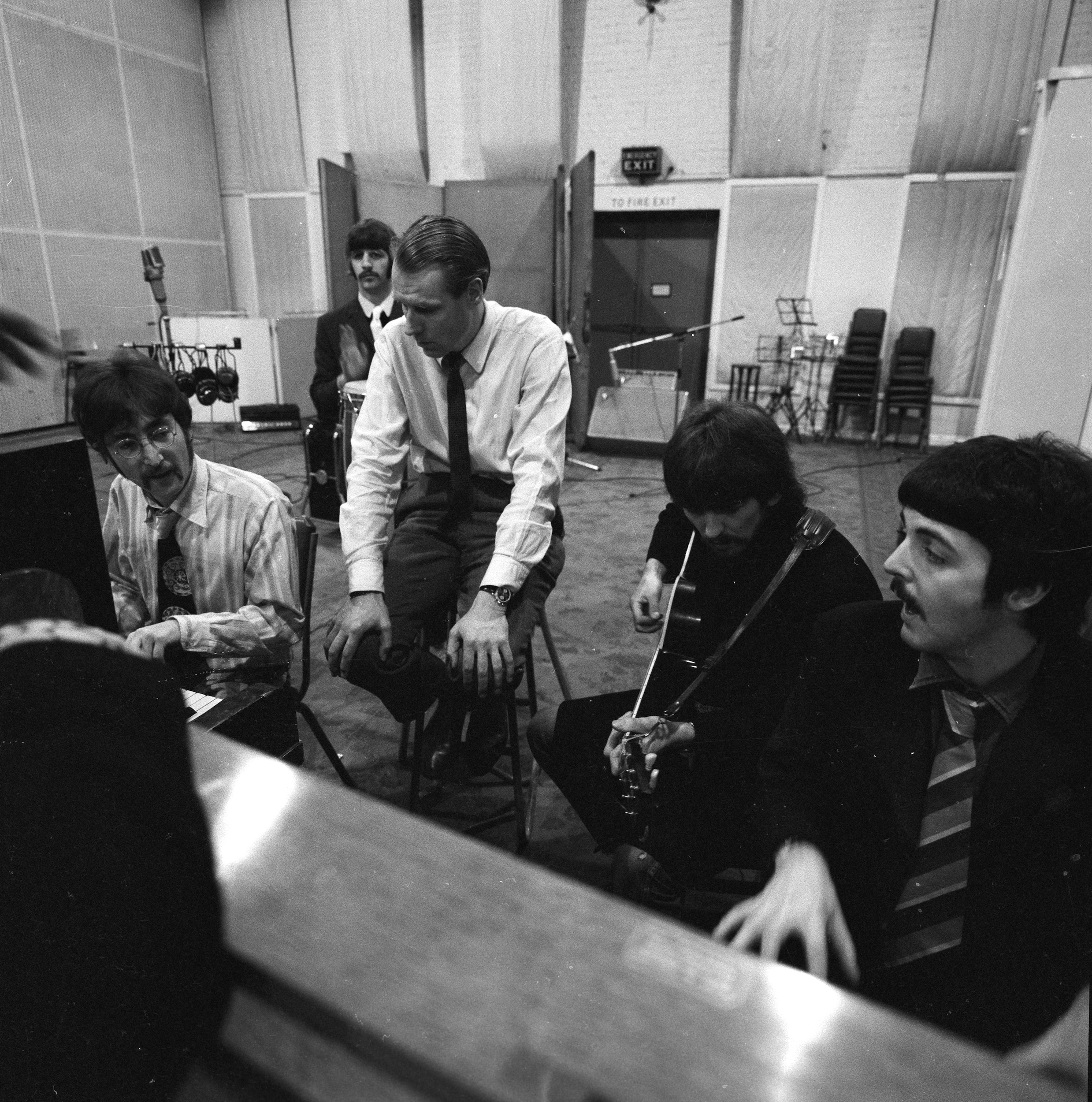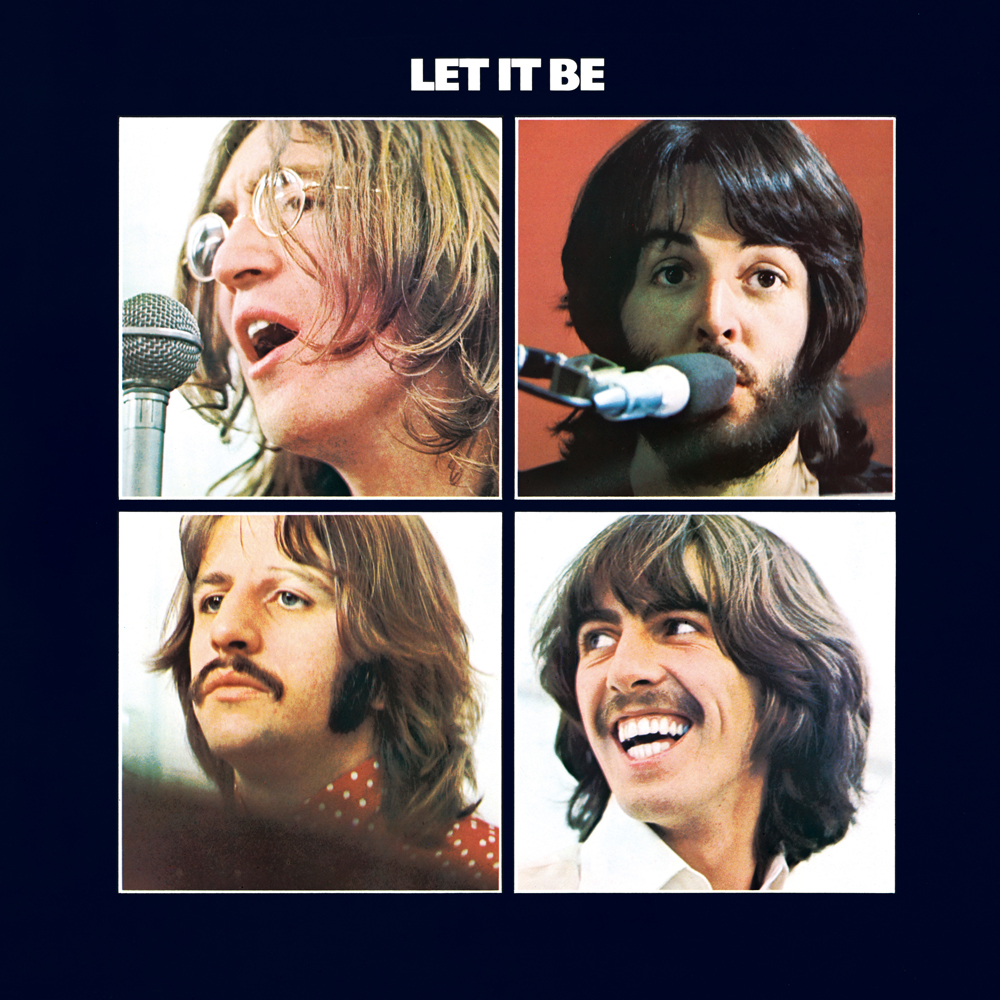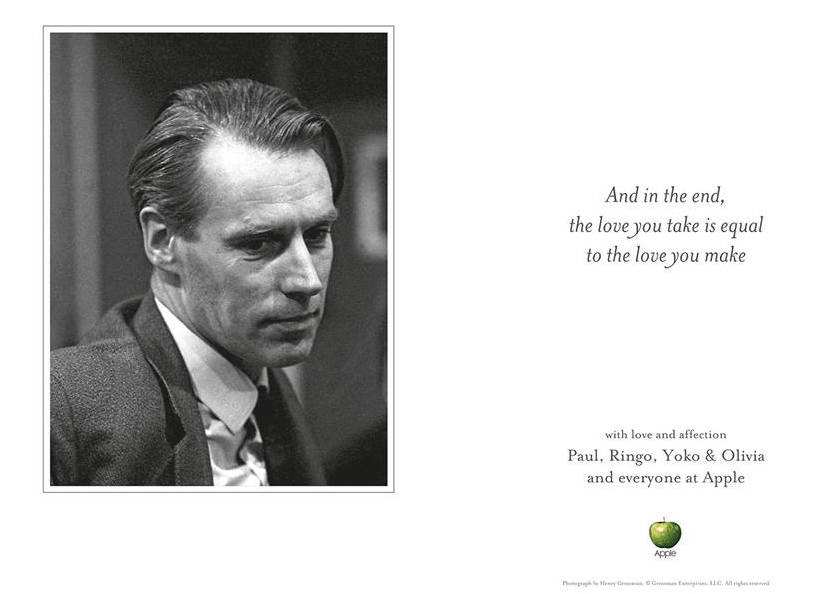
The Beatles with George Martin, Abbey Road Studios Jan 1967, courtesy of Apple Corps Ltd.
This Q&A with the legendary producer originally appeared in the January 30, 1971, issue of Record World, a music industry publication, when George Martin was 45. At the time of the interview, Martin had left EMI and formed AIR, an independent recording/music publishing operation.
Martin was born January 3, 1926.
March 8, 2017, marked the first anniversary of Martin’s death at age 90. We’re proud to run an excerpt of the interview, the first time that it has appeared since 1974.
The questions were submitted to Martin, who provided his responses. Decades later, it’s a “new” insight into his work with The Beatles and other topics.
In your early days as a record producer, you built a reputation for versatility of product. In the last six years this has been overshadowed, perhaps lost, by your connection with the Beatles. Do you regret this? In today’s conditions do you think you can regain that reputation?
Not particularly; I suppose I have been too busy really to think about it. In any case, I have tried very hard to retain a certain versatility of product, if only to go on working with old friends. I don’t think I would consciously go out and say, “I must regain that reputation.” I do what I think I do best, and I will go on doing that as long as I want to. To worry about reputation–whatever it is–is narcissistic and unproductive.
Do you regret your decision to leave EMI?
No.
The history of so-called artistic partnerships is not a happy one. Have you regretted linking yourself with three other major record producers.
Not a bit. The partnerships at AIR have been a curiously successful one. I suppose I am the spearhead of the group, but it works well because we are four very different people dedicated to a common cause. I know I could not make records as well as Peter Sullivan in his particular field–every one of Tom Jones and Engelbert Humperdinck’s records required a special skill that he had. Equally, I know he could not have coped with the Beatles. We are complementary. We give each other something the other lacks and needs and, most important of all, we like each other. That is the basis of our company, and is to be found in any of the 35 people working together in AIR.
In America you are thought of as a millionaire. Are you?
Certainly not. I cannot say that I am not well off, but my assets are very much tied up in AIR. In any case, during the heyday of the Beatles (1962-1968) I worked for EMI on a small salary and had no participation at all in the profits and no royalties then.
Related: Our 2016 interview with producer Giles Martin on his own Beatles projects and father George
Is it true that the chairman of Decca, immediately before the Beatles era, referred to your label [Parlophone] as “EMI’s junk label?”
It is possible. Certainly when I took over direction of Parlophone in 1955 I was aware that it was the poor relation of EMI. It had not had a real hit since before the war, when I was at school.
 Is it true that Phil Spector remixed one of the albums you cut with the Beatles?
Is it true that Phil Spector remixed one of the albums you cut with the Beatles?
Let It Be was made before Abbey Road. It was made at a time when the first visible rifts were appearing between the Beatles. They were not happy days for the boys, and the result was not their best record. John was insistent that it should be a “live” album, and would not let me do any editing, any overdubbing or add any other instruments. Well, the final result was not bad; at least it was honest. When I heard the eventual disc the only person more surprised than I was Paul. John had brought in Phil Spector and did a lot of overdubbing of voice and adding various sugary sounds to the original album, reversing his original thoughts. It turned into the most un-Beatle album ever to be issued.
Do you think there is a significant relationship between music and drugs?
There has been, but not necessarily a benevolent one. A lot of music has been created in the past few years by “stoned” people for “stoned” people but I do not think it has elevated our music. I know that if I had been on drugs I could never have got Sgt. Pepper together.
Watch a brief profile of Martin from the 8-part Soundbreaking documentary…
Among his many honors, Martin earned an Academy Award, six Grammy Awards and in 1977, the BRIT Award for Best British Producer of the past 25 years. He was inducted into the Rock and Roll Hall of Fame in 1999.

The Beatles’ tribute to George Martin on March 10, 2016, via their Facebook page
If you’re a new Best Classic Bands reader, we’d be grateful if you would Like our Facebook page and/or bookmark our Home page.







2 Comments so far
Jump into a conversationWho hired him? He was the boss, making all the final decisions and hiring only those he wanted to work with.
If you don’t know anything about him, why did you come here?